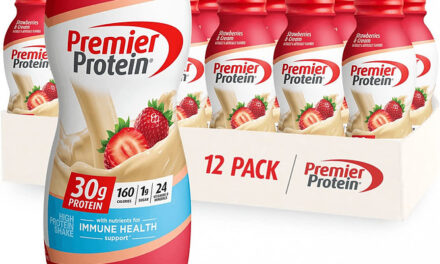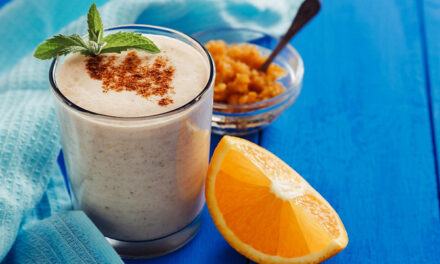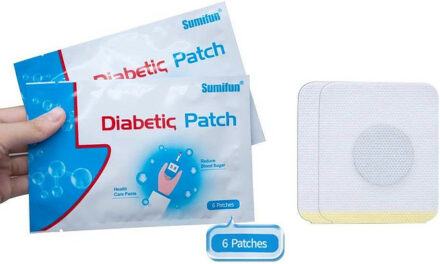According to some, whey proteins are special packs of protein powder that are good for people with diabetes. They give you energy and nutrients without increasing your blood glucose level rapidly. But, is whey protein powder good for diabetics?
That’s exactly what we are going to find out in this article.
In addition, we will also cover the ways whey protein effect your blood sugar, when whey protein powder is good for diabetics, when it is bad, and the best whey protein powers for you.
Let’s touch on the dietary effects of diabetes before jumping onto whey protein powders.
Dietary Effects Of Diabetes
When you have diabetes, you need to make sure the types of food and drinks you take, even dietary supplements, are safe for you. This is to ensure that your blood sugar levels do not fluctuate too much.
Managing your blood sugar level greatly depends on what you eat, drink or add to your meal.
Generally, using whey protein can be useful for anyone with diabetes wanting to control blood sugar. Whey protein is an abundant nutrition supplement, often taken by athletes and bodybuilders in the form of a milkshake or bar. It is thought that it can help boost muscle strength and has also been used as diabetes treatment to lower blood glucose levels and improve satiety as well.
Consuming whey protein is a healthy way to add more protein to your diet. It could provide a quality protein source that is essential for people with diabetes, regardless they are athletes, bodybuilders or those who simply want to gain muscles and strength while losing fat.
Now let’s move on to whey protein powders…
What Are Whey Protein And Their Powders?
Whey protein is one of the main proteins found in dairy products. It contains ample amounts of the 9 essential amino acids that are needed to carry out protein functions in the body.
Generally, milk is made of two proteins, Casein (80%) and Whey (20%). Whey is basically the watery portion of raw milk.
Whey could also be described as the leftover once the milk has been curdled with rennin (a protein that curdles milk) and strained in the process of cheese-making or as the liquid you see floating on top of a newly opened container of natural yoghurt.
When Whey (which tastes a little bitter) is separated from the rest of the milk, it undergoes various processes to become what we call Whey Protein Powder. The powder is usually sold as a flavored powder and is mostly added to meal replacements, shakes and protein bars.
Health Benefits Of Whey Protein Powder
Beyond just muscle strength and leanness (weight reduction), whey protein has numerous other health benefits.
They include:
- Lowering blood sugar, blood pressure, and cholesterol levels
- Reducing symptoms of stress and depression.
- Reduction in the risk associated with cancer, hepatitis and bone mineral density.
- Nourishing and strengthening the hair.
- Raising the levels of glutathione, an antioxidant in body cells. Due to the presence of Cysteine, an essential amino acid in whey protein.
- Maintaining daily proteins that aren’t available in an easily dissolved powder, as seen in Whey.
Types Of Whey Proteins
There are 3 types of whey protein. The key difference between the three of them is their content and how they are processed.
Let’s explore them now…
- Whey Protein Concentrate
The concentrate contains about 70–80% protein. It’s the most common type of whey protein and has higher lactose, fat and minerals content.
Many people prefer its taste. The amount of protein in it depends on how concentrated it is.
Whey protein concentrate is a result of extracting protein from raw milk using heat and acid, or enzymes.
- Whey Protein Isolate
The isolate contains about 90% protein or more. It’s further processed to remove most of its lactose (sugar) and fat.
Whey isolate contains fewer minerals, and less sugar content and has fewer health-boosting bioactive compounds compared to whey protein concentrate.
Whey protein isolate is usually quicker to digest than whey protein concentrate and is the best choice for those who are lactose-intolerant.
- Whey Protein Hydrolysate
This type of whey protein has already undergone partial hydrolysis – a process that aid the body in absorbing protein. It doesn’t require much digestion like the whey protein concentrates and isolates mentioned earlier; therefore termed ‘pre-digested protein’.
Hydrolysate is commonly used in infant formulas and medical protein supplements. It is important to note that whey protein hydrolysates cause a 28 – 43% greater spike in insulin levels than isolates.
Can Diabetics Take Whey Protein Powder?
Several scientific studies show the benefits of using whey protein powder for people with diabetes as it can help to maintain healthy blood glucose levels.
In addition, if you are taking whey protein powder during exercise, they can be even more beneficial as the combination of protein and exercise helps to control blood sugar levels more effectively, especially in obese people.
Whey protein is rich in amino acids, so it tends to increase the plasma concentration of alanine and glutamine (amino acids in the body). These amino acids are transported to the liver, to stabilize blood glucose during fasting periods and boost insulin, the chemical responsible for the breakdown of blood sugar.
It is insulin that many people with diabetes have trouble producing or processing, so a diet that increases insulin production may help to combat the disease. Therefore, it is clear that people with diabetes can take whey protein powder as a protein shake, a beverage or added to foods in the recommended amounts as it has a beneficial effect in the treatment of diabetes.
How Does Whey Protein Powder Affect On Blood Sugar?
Being a rich source of amino acids, whey protein supplement stimulates the secretion of insulin and moves glucose into the cells. This averts the risk of type 2 diabetes, especially when you consume it in the morning or after physical activity.
Apart from insulin secretion, whey protein powder also appears to decrease blood sugar after a meal. (Post-prandial blood glucose).
Similarly, whey protein aids in blood sugar regulation by stimulating the production of the hormone insulin.
However, according to an article
published in 2021, certain protein powders cause blood sugar to rise despite the reduced carbohydrate content. However, they found that some amino acids in whey protein powder, especially glucogenic amino acids, may be turned into glucose through a process called gluconeogenesis. If not accounted for, this glucose might raise your blood sugar level.
Is Whey Protein Powder Good For Diabetics?
Yes, people with diabetes may consume whey protein powder in the right proportion as a beverage, protein shakes or add to meals.
Despite its necessity, it’s always a good idea to check with your doctor first, before adding such supplements to your diet.
Whey protein has some properties that are useful to people with diabetes. Below are some reasons to back up why whey protein is good for diabetics:
- Whey protein helps to keep blood sugar in check by promoting insulin secretion, especially when eaten before breakfast.
- It has an anti-inflammatory function. Thus, aids in maintaining and controlling blood sugar levels
- It provides the amino acid ‘cysteine’, which synthesizes glutathione (an antioxidant) that curbs the effect of oxidative stress (the buildup of damaging radicals). This may help you control insulin resistance and drag out some of the complications of diabetes, such as retinopathy, kidney damage and peripheral neuropathy.
- Whey protein can cause a decreased level of triglyceride when taken after meals.
Can Whey Protein Prevent Diabetes?
Recommendations are made for all diabetics to consume foods that lower blood sugar. Protein is best among such foods.
Diabetes, as stated previously, is characterized by high blood sugar and impaired function of insulin. Therefore, the consumption of whey protein, especially when paired with adherence to dietary and activity guidelines, may be an approach to prevent diabetes. However, no scientific evidence suggests that whey protein powder itself will prevent you from diabetes.
When Is Whey Protein Powder Bad For Diabetics?
Having discovered that whey protein is effective in moderating blood sugar levels, it is necessary to note that – too much whey protein may cause some digestive problems such as:
- Bloating
- Nausea
- Pain & Cramping
- Appetite Suppression
- Flatulence & Diarrhea
- Constipation (usually associated with lactose intolerance).
Consuming whey protein excessively without exercising may result in undesired outcomes like damaging the liver over an extended period. Don’t forget that!
In most research studies noted the recommended daily dose of whey protein as 1–2 scoops (25–50 grams). If you have diabetes, it is essential for you constantly visit a registered dietician to determine your personal needs and what is best for you.
CAUTION: Possible Side Effects of Taking Whey Proteins
Remember, whey protein powder may cause digestive problems, as stated above. But most of these side effects are related to lactose intolerance.
Lactose intolerance is a result of the inability to produce enough of the enzyme lactase, which the body needs to digest lactose.
In addition, some people claim too much whey protein can cause osteoporosis
and damage the liver and kidneys. So, be mindful!
Notwithstanding its health benefits, some people are allergic to whey protein. That means it can result in rashes, facial swelling, throat and tongue swelling and probably runny nose, which are rare in adults.
Constipation may be noticed in some people who take whey protein powder accompanied by fewer fruit and vegetables, especially on a low carbohydrate diet.
Too much whey protein (i.e. high doses) can lead to headaches, stomach aches, acne breakouts and nausea.
The above are some of the short-term side effects. Prolonged consumption of whey protein powder can lead to some long-term side effects. They are likely to be harmful to your body.
High intake of whey protein results in a mineral imbalance in the body. Consequently, whey protein powder can decrease the blood pH level (7.35 to 7.45) as they are made from animal milk
which is mostly acidic. Ultimately it can increase blood acidity.
What Is The Appropriate Whey Protein Powder Dose For A Diabetic?
Whey protein can produce several health benefits that could come in handy in diabetes regulation. However, for results to be effective, you should have a good blood sugar reference range.
Whey protein is highly concentrated, so you don’t have to consume a lot to get the best result. It contains up to 15g – 30g of protein per serving. That is effective in increasing insulin sensitivity, achieving weight loss and boosting metabolism.
Research suggests that protein should account for 10% – 35% of your daily calories as long as your kidneys are in good shape. This is regardless you have diabetes or not.
Similarly, carbohydrates should account for 45% – 65% of your calorie intake, with fat accounting for the remainder.
7 Best Whey Protein Powders for Diabetics
There’s no way to know all Whey Protein Powders exist in the market, but let’s consider the brands that are popular and readily available.
For someone to choose the best whey protein powder for diabetics, it is vital to look closely at each product’s ingredient list. Similarly, you should try to avoid powders that contain artificial colors, flavors and preservatives, as well as fillers and sweeteners (added sugar).
Aside from the importance attached to looking out for “No Added Sugar” on the labels, it is paramount for people with diabetes to avoid anything high in carbohydrates. Many sugar-free protein powders can still have a load of carbs listed on their labels, which you should look for and avoid.
This article compiled some of the best whey protein powders for diabetics based on research and written specifications.
Let’s review them now…
1. Bob’s Red Mill Whey Protein Powder
Bob’s Red Mill Whey Protein Powder is a good choice.
Pros
- It contains all the essential amino acids. It’s a lovely addition to shakes and smoothies.
- This powder is nice when used in baking breads, cakes, pancakes…etc.
- Instantly dissolves.
- Contains no artificial ingredients.
- Serves as a complete protein.
Cons
- It’s unflavored & unsweetened.
2. Orgain Organic Protein Powder
It’s a low-carbohydrate protein powder for people with diabetes, contains no added sugars that could lead to blood glucose spikes.
It also provides a full range of essential amino acids needed for muscle growth and recovery.
It has a great taste as it is mostly sweetened with stevia.
Generally, it offers
Calories: 150
Protein: 21g
Carbs: 15g
Fat: 4g
Pros
- Zero sugar, means no glucose spikes!
- Low fat and carbohydrates, making it easy to support a diabetes diet.
- Contains fiber for easy digestion.
- No artificial ingredients.
- Helps to burn out calories quickly.
- Usually based on pea, rice and chia seeds.
Cons
- Currently only available as vanilla flavor.
3. Isopure Zero Carb Protein Powder
This is one of the best whey protein powders for diabetics, as it is gluten-free for those with gluten allergy. It can help people to lose weight too.
It’s sugar-free, contains vitamin C and all the essential amino acids.
Generally speaking, it is composed of 100% whey protein isolate, and is a low-carb powder with a mineral blend.
Pros
- Has a great taste.
- 25gram protein.
- Can be mixed with any ingredient.
- No sugar, no carbs and no fats
- Helps in regaining energy levels, and strengthens bones and muscles.
Cons
- Usually difficult to dissolve it in liquids and water.
- It is a bit expensive.
4. Authentic Whey by Jacked Factory
Authentic Whey is a nice source of protein for people who desire to increase muscle mass or maintain healthy blood sugar levels. It is carefully manufactured to retain a high concentration of beneficial proteins while removing unwanted fats and lactose.
It also contains ample amounts of natural immunoglobulins, vitamins, and minerals.
Authentic Whey comes in variety of flavours such as vanilla, chocolate caramel, fruity cereal splash and orange ice cream.
Pros
- Low sugar and fat content (3 grams of carbs and 1 gram of fat per serving).
- High protein content per serving -24g
- Quickly absorbed and easy to digest.
- Great taste.
Cons
- Has a grainy texture. Therefore, need to be well-shaken before drinking.
5. Transparent Labs Whey Protein Powder
Transparent Labs whey protein from grass-fed cows has no sugar or artificial sweetening agents. Its flavors are natural and tasty.
It contains less than 1 gram of carbohydrates in each serving, meaning that it is ok to be included in your diabetic meal plans.
Pros
- Contains 28g of whey protein from grass-fed cows.
- No additives or fillers, although is has a tasty flavor.
- Readily available. That is, not scarce.
Cons
- You can’t get an unflavored option of Transparent Labs Whey Protein Powder, which is needed for mixing with other foods.
6. Garden of Life Whey Protein Powder
This protein powder covers the full range of all essential amino acids and provides digestive-supporting ingredients but no additional or unnecessary carbs and fat.
Pros
- No added sugars to avoid blood glucose spikes.
- Rich in vitamins for overall immune health.
- Comes in vanilla, vanilla Chai, chocolate flavors and unflavoured
- Contains complex protein mix consisting of plant products for the best amino acid profile
- Includes probiotics and enzymes.
Cons
- It doesn’t taste great.
7. Gold Standard Whey Protein Powder
Optimum Nutrition Gold Standard Whey is a protein powder drink mix that contains Whey Protein Isolates as its primary protein source.
This product is processed by low-temperature to limit denaturation of the proteins and is both bioavailable and easily digested.
It comes in a completely naturally flavoured option, which is free of artificial flavours, sweeteners, and colors!
Pros
- Low Calories, Low Fat, Low Carbs.
- 100% whey protein. Which is best for the ketogenic diet and diabetics.
- Decent taste with different flavors.
- Contains just a few additives with premium quality ingredients.
- Very affordable
Cons
- It is usually packaged in a zip lock bag in the container, which seems not environmentally friendly.
Conclusion
People with diabetes can use whey protein powder as a protein shake or add it to foods in the recommended amounts. It could be useful in effectively controlling blood sugar levels in diabetics. It also can potentially increase the secretion of insulin.
For most people, the recomended amount of whey protein powder is 0.36g for every pound of body weight or 0.8g for every kilogram of body weight.
You could consider a whey smoothie for breakfast, sprinkle whey protein over cereal, and sprinkle whey powder into soups, stews and stir-fries, if your health care professional recommends that.



















